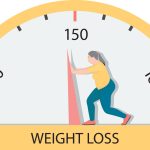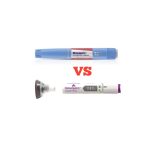Wegovy and Ozempic Not Linked to Increase in Suicidal Thoughts, U.S. Study Finds

A comprehensive U.S. study has revealed that there is no evidence to suggest a connection between the usage of Novo Nordisk’s Ozempic or Wegovy and an increase in suicidal thoughts, as reported by researchers on Friday.
Ozempic, designed for type 2 diabetes, and Wegovy, an obesity treatment, share the same active ingredient, semaglutide. Contrary to previous concerns, an analysis of electronic medical record data from over 1.8 million patients demonstrated a lower risk of new and recurrent suicidal thoughts among those taking semaglutide when compared to individuals using alternative medications for weight loss or diabetes.
Semaglutide, categorized as a GLP-1 agonist, was initially developed for type 2 diabetes. Beyond its role in controlling blood sugar levels, these drugs induce a sensation of fullness.
Previously, reports of suicidal ideation linked to semaglutide prompted an investigation by the European Medicines Agency, and the U.S. Food and Drug Administration had identified suicidal ideation as a potential safety signal for GLP-1 drugs.
A review by Reuters in the past year highlighted 265 reports of suicidal thoughts or behavior associated with semaglutide or similar medicines since 2010, with 36 of these reports involving death by suicide or suspected suicide. However, it’s crucial to note that adverse event reports do not establish a direct link between a drug and a side effect but serve as indicators for regulatory scrutiny.
In this latest study, funded by the U.S. National Institutes of Health and published in the journal Nature, researchers examined data from 240,258 U.S. patients prescribed Wegovy or other weight loss medications, and nearly 1.6 million with type 2 diabetes on Ozempic or alternative treatments.
Comparing nearly 53,000 Wegovy users with matched users of other weight-loss drugs, the study found a significantly lower incidence of first-time suicidal thoughts in Wegovy users during the initial six months of use. After accounting for other risk factors, the researchers reported a 73% lower risk of first-time suicidal thoughts with Wegovy.
Moreover, no suicide attempts were reported among the Wegovy group, while 14 users of other drugs reported suicide attempts. Similar patterns were observed with the use of Ozempic compared to other diabetes drugs.
The study’s findings remained consistent across various demographic factors, including patients’ sex, age, and ethnicity, for both semaglutide formulations.
While acknowledging the limitations of a retrospective observational study, the researchers emphasized that the findings may alleviate concerns about the potential association between GLP-1 agonists and an increased risk of suicidal ideation.
Study coauthor Pamela Davis of Case Western Reserve School of Medicine emphasized the importance of understanding all potential complications associated with the increasing popularity of these drugs, stating, “It’s important to know that prior suggestions that the drug might trigger suicidal thoughts are not borne out in this very large and diverse population in the U.S.”





